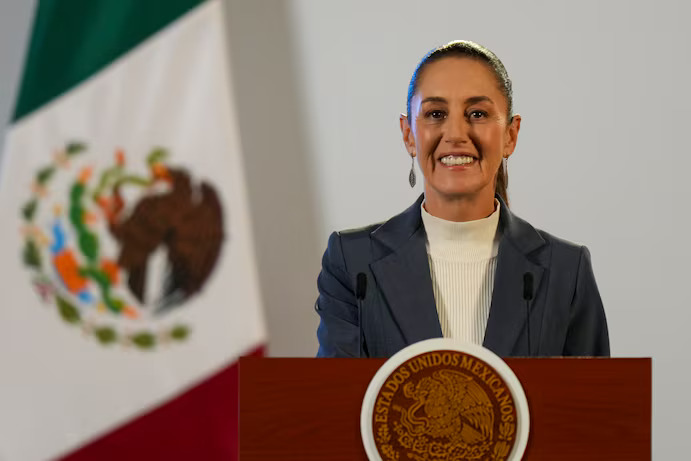Mexico has introduced a bilingual “Migrant Hymn” celebrating its nationals living in the United States, even as migrants from other countries face significant challenges and dangers within Mexico.
President Claudia Sheinbaum unveiled the hymn during her morning briefing, calling Mexican migrants “heroes” for their contributions, including $63 billion in remittances sent home last year. The song, blending English and Spanish, emphasizes resilience and loyalty, with lines such as “we change our location, not our flag.”
While around 11 million Mexicans reside in the U.S., including 5 million without documentation, many fled due to violence or lack of opportunities in Mexico. Critics question the government’s commitment to supporting these migrants, especially in light of potential mass deportations under U.S. President-elect Donald Trump.
Israel Concha, director of New Comienzos, an organization aiding returning migrants, highlighted the ongoing struggles migrants face upon returning to Mexico. He noted the uncertainty surrounding whether the government would reintegrate them with dignity and support.
At the same time, migrants from other nations continue to face severe hardships in Mexico. A shelter in Reynosa, a cartel-dominated border city, announced it could no longer accept newcomers due to rampant kidnappings. Rev. Héctor Silva, who runs the shelter, said police now escort migrants to asylum appointments for safety.
A new caravan of migrants recently left Tapachula, near the Guatemala border, frustrated by government roadblocks. However, previous caravans have rarely made it to the U.S. border. They were often stopped by Mexican authorities or faced violence and harassment along the way.
Doctors Without Borders recently reported that hundreds of thousands of migrants in Mexico are stuck in a difficult situation. They are facing violence and many challenges, with no clear way forward.
Why does Mexico celebrate its own migrants while others face neglect?
While Mexico praises its nationals abroad for their economic contributions, foreign migrants within its borders often face hostility, violence, and limited support. This contrast highlights the unequal treatment and raises concerns about the country’s migration policies.

